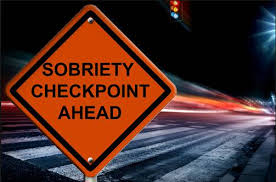The government is consulting on roadside drug testing – tell them what you think

Any talk about legal, regulated cannabis must include a discussion around impaired driving. And while people are right to be concerned, there’s no quick-fix solution.
We’re pleased the government has begun that conversation ahead of the 2020 referendum, announcing plans to consult with the public on the issue of driver testing.
We all want to see our roads free from drug impaired drivers, and efforts to improve how Police detect and deter drug driving are an important part of New Zealand’s road safety programme. However, calls for urgent introduction of random roadside drug testing should be treated with caution.
Claims that saliva-based tests, similar to breathalyser tests, are reliable, accurate and ready to go are misplaced. It’s not just a matter of giving police the power to use them. There are several interrelated reasons for this.
Saliva tests, such as those being used in Australia, do not establish impairment. They are not 100% accurate, and currently they can identify only three substances – methamphetamine, MDMA (ecstasy) and cannabis. They’re also slow, and would cause lengthy delays at every checkpoint. Plus, any positive result would still need to be confirmed by further screening, probably a blood test.
“It’s complicated”, says Drug Foundation Executive Director Ross Bell. “When you start digging into it, there are all these issues that people haven’t considered – for a start, it doesn’t actually test for some of the drugs people are most worried about, like synthetics.”
Police are already subjecting drivers suspected of being impaired to a standardised impairment field test. It involves performing tasks such as balancing on one leg, walking a straight line or accurately estimating when 30 seconds have elapsed.
Mr Bell says that’s very effective. “People may laugh … but that type of test has been well-validated for determining impairment for quite a wide range of drugs.”
If a driver fails these tests, they can be detained for a blood test. He says around 90 percent of the people who fail the impairment test will give a positive blood sample. As with any similar intervention, a lot rides on training and support available to frontline officers to conduct these effectively.
Associate Transport Minister Julie Anne Genter admits there are issues with the technology. She says that’s why the government has opted to ask experts and the general public for their input.
Consultation is taking place over the next six weeks, until 5pm Friday 28 June. The Government is looking for feedback on:
- the methods that could be used to screen and test for drugs
- the circumstances in which a driver should be tested
- what drugs should be tested for
- how an offence for drug driving should be dealt with by Police.
Download the Discussion document, [PDF, 1.4 MB]. Or find out more on the Ministry of Transport website
Recent news

Reflections from the 2024 UN Commission on Narcotic Drugs
Executive Director Sarah Helm reflects on this year's global drug conference
What can we learn from Australia’s free naloxone scheme?
As harm reduction advocates in Aotearoa push for better naloxone access, we look for lessons across the ditch.

A new approach to reporting on drug data
We've launched a new tool to help you find the latest drug data and changed how we report throughout the year.

